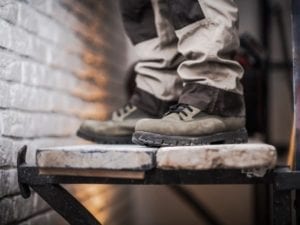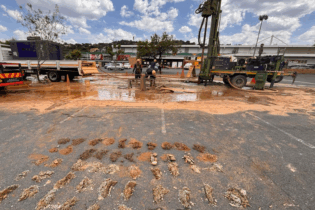As the construction industry reopens under level 3 lockdown restrictions, the Construction Covid-19 Rapid Response Task Team (CC19RRTT) continues to lobby government for change that will facilitate the recovery of the embattled sector, despite the Covid-19 pandemic.
This is according to Cox Yeats attorney and CC19RRTT representative Richard Hoal, speaking at an online roundtable discussion hosted by Databuild. Also on the panel were iProp marketing director and chairperson of the South African Property Owners Association (SAPOA) National Developers Forum Richard Bennet, Combined Flooring contracts director Jason Merrington, Kaygrant Technical Services business manager Andrew Farrow and Corobrik commercial director Musa Shangase. Health and safety measures around mitigating the spread of Covid-19 will be the top priority as workers start returning to site in level 3 lockdown but, said Hoal, flare-ups of the virus, similar to that experienced by the mining industry, are to be expected, despite stringent regulations issued by the Department of Employment and Labour. Merrington concurred. “A physical on-site presence by workers is required to get the work done and they will be at risk of contracting the virus.” Should an infection outbreak occur, the task team has proposed to government that sites be permitted to continue to operate. “Of course, anyone who tests positive for the virus must be quarantined,” said Hoal, “but the disruption of site activity should be avoided, where possible, provided the required infection control procedures are applied.” “Trying to tick all the regulation boxes will be difficult,” said Farrow. “The best way forward is to learn from one another’s day-to-day experiences, including sectors in other countries that have returned to work. The workforce has a crucial role to play in providing practical feedback to management on what works on site and what does not. “Our experience has shown that people are extremely fearful of Covid-19 and need constant reassurance,” he continued. “Consequently, not only is comprehensive training around health and hygiene regulations essential, but also ensuring that site workers do not become complacent over time and continue to practise the correct protocols. “Achieving this will require everyone’s involvement. Site managers and supervisors should provide Covid-19 training in conjunction with occupational health and safety (OHS) officers, who cannot be expected to neglect their other OHS responsibilities in favour of dealing with virus-related issues.” “Keeping the lines of communication between management and workers open, and making sure their feedback on perceived shortfalls is received and acknowledged, is the best way to restrict the spread of the virus on site and ensure that it remains productive,” added Merrington. Bennet called on industry participants to form relationships with public transport role players and assist with the transportation of workers to construction sites.Addressing the issue of who bears the cost of implementing Covid-19 protocols at construction sites, Hoal said the task team is lobbying government for access to relief funds. “Various sources of funding, including possibly the NHBRC and other relief funds, are being considered.”






